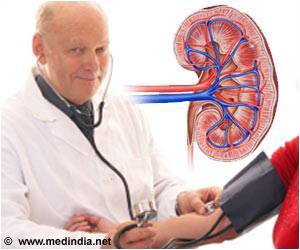Obesity and irregular physical activity are the major risk factors for cardiovascular deaths in the U.S.

‘Brisk walk for 20 minutes or more daily can help shed love handles and also reduce the risk of cardiovascular diseases.’





Researchers from the Charles E. Schmidt College of Medicine at Florida Atlantic University make the case that metabolic syndrome, a cluster of three of more risk factors that include abdominal obesity, high triglycerides, high blood pressure, abnormal lipids, and insulin resistance, a precursor of type 2 diabetes, is the new "silent killer," analogous to hypertension in the 1970s. As it turns out, the "love handle" can be fatal. The study was published in the Journal of Cardiovascular Pharmacology and Therapeutics,
Clinicians have traditionally evaluated each of the major risk factors contributing to metabolic syndrome on an individual basis. There is evidence, however, that the risk factors are more than just the sum of their parts.
"The major factor accelerating the pathway to metabolic syndrome is overweight and obesity," said first author Charles H. Hennekens. "Obesity is overtaking smoking as the leading avoidable cause of premature death in the U.S. and worldwide."
For optimal health, the waist should measure less than 40 inches for men and 35 inches for women.
Advertisement
In addition, adipose tissue may produce various adipokines that may separately impact insulin resistance and cardiovascular disease risk factors. The authors further caution that individuals with metabolic syndrome are largely asymptomatic but have a 10-year risk of a first coronary event, based on the Framingham Risk Score of 16 to 18 percent, which is nearly as high as a patient who already has experienced a prior coronary event. Moreover, they are concerned that metabolic syndrome is both underdiagnosed and undertreated.
Advertisement
"There are patients who have a normal body mass index yet are at high risk. These patients represent an important population for clinicians to screen for metabolic syndrome."
In the commentary, the authors emphasize the importance of therapeutic lifestyle changes beginning in childhood. They note that as the current generation of American children and adolescents reach middle age, morbidity and mortality from cardiovascular disease will increase.
"The pandemic of obesity, which begins in childhood, is deeply concerning," said Perumareddi. "Adolescents today are more obese and less physically active than their parents and already have higher rates of type 2 diabetes. It is likely that the current generation of children and adolescents in the U.S. will be the first since 1960 to have higher mortality rates than their parents due mainly to cardiovascular disease, including coronary heart disease and stroke."
The authors stress that obesity is a major risk factor for several cancers, especially colorectal, but also breast and prostate and that clinicians should not let the perfect be the enemy of the possible.
For American adults, this implies the need for evidence-based doses of drugs of lifesaving benefit for those at high risk.
"In the U.S., cardiovascular disease will remain the leading killer due largely to obesity and physical inactivity," said Hennekens. "Unfortunately, most people prefer prescription of pills to proscription of harmful lifestyles. The totality of evidence indicates that weight loss of 5 percent or more of body weight combined with a brisk walk for 20 or more minutes daily will significantly reduce cardiovascular events and deaths." The study is published Journal of Cardiovascular Pharmacology and Therapeutics.
Source-ANI














